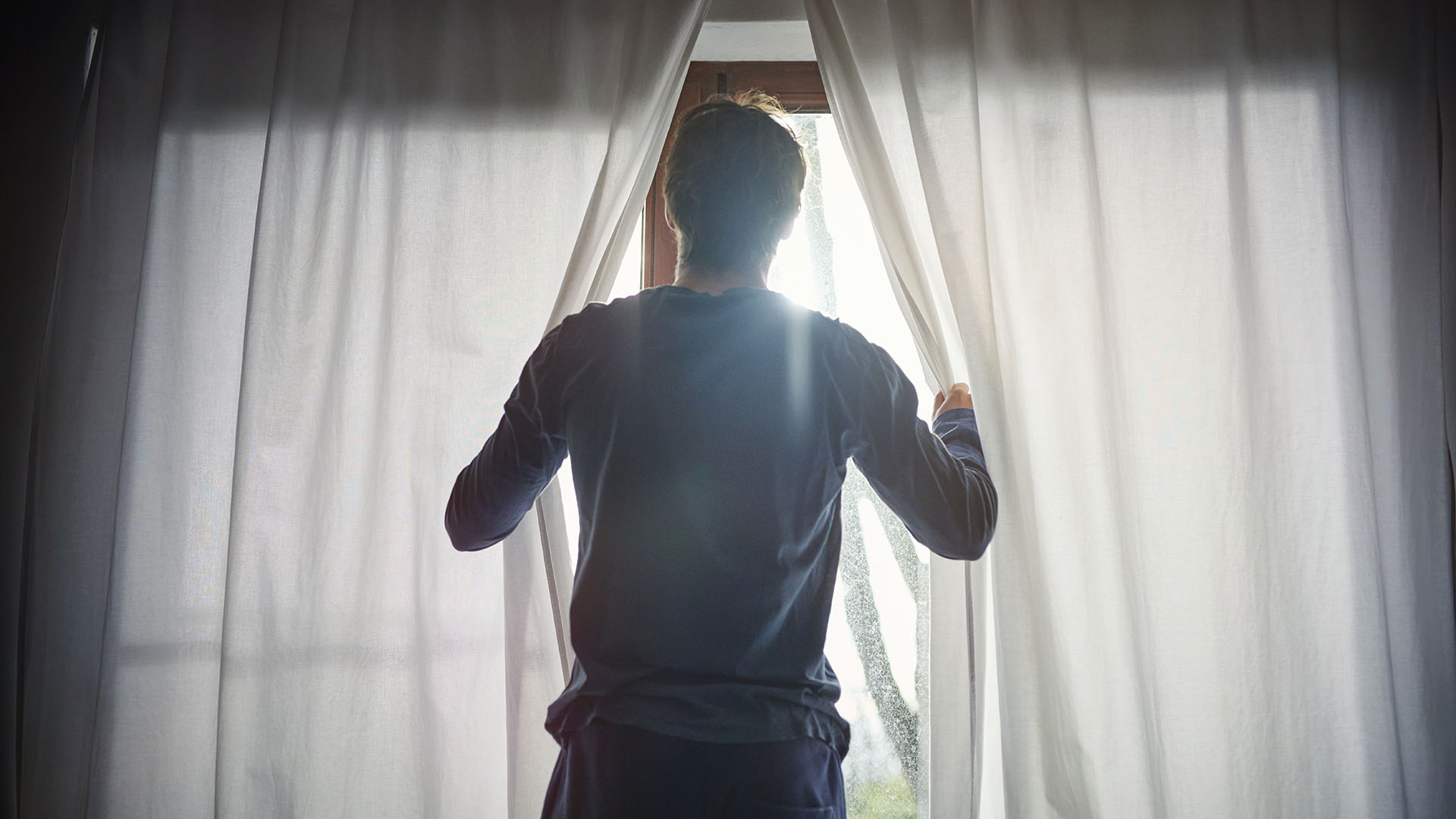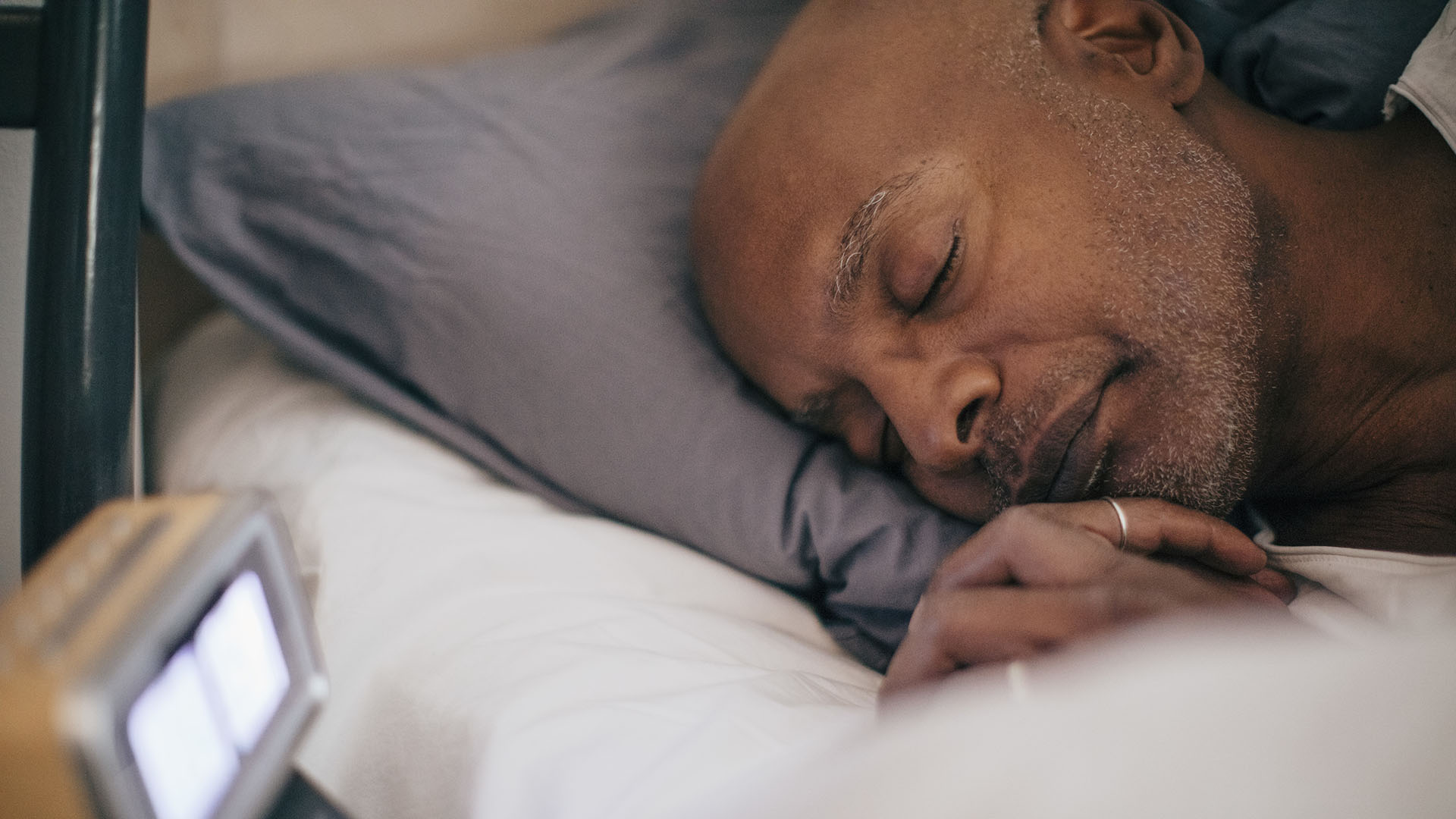World Sleep Day: How to reset your sleep schedule
Kick-start a healthy routine with these tips

One oft-repeated bit of advice when it comes to establishing a healthy sleep schedule is to go to bed and wake up at the same time every day. But if you've got into bad habits, it can be tricky to get back on track. One late night followed by a lie-in the next day, and another later night because you don't feel tired when bedtime rolls around again, and the next thing you know you're in a vicious cycle of unstructured sleep and unproductive days.
Of course, around this time of year we also have the Daylight Savings time clock change to navigate (even an hour's difference can really knock your body clock out of whack).
It is possible to retrain your body to feel tired (and alert) at the right times, and the knock-on benefit should be better quality sleep in general. Read on for our top tips for resetting your sleep schedule.
Remember, your sleep setup can also have a big impact on how well you rest, and if it's time to upgrade, our best mattress guide has plenty of recommendations. Or, if the mattress looks fine but is still uncomfortable, try our best mattress toppers guide instead.
1. Shift your timings incrementally
If you're currently going to bed at 1am and waking up at 8am, and you want to be dropping off at 11pm and rising at 6am, then you've got a two-hour difference to navigate. You might be tempted to try and make the change 'overnight', as it were, but a more effective – and realistic – approach is to shift timings incrementally.
Start by going to bed 20 minutes earlier tonight and setting your alarm for 20 minutes earlier too. Then tomorrow, add another 20 minute shift. Continue until you're at your desired sleep and wake times.

Trying to move your bedtime by too big a window will likely have some physical repercussions. Psychologist, neuroscientist and author of Navigating Sleeplessness Dr Lindsay Browning explains: "Think of fixing your sleep schedule a bit like being jet-lagged, because basically you are in a different time zone to the one you want to be in."
Sign up to get the BEST of Tom's Guide direct to your inbox.
Get instant access to breaking news, the hottest reviews, great deals and helpful tips.
The incremental approach gives your body time to adjust along the way, without the side-effects. It's also mentally much more manageable, so there's less danger you'll just abandon your efforts when your alarm sounds on day one.
2. Keep it up at the weekends
It's important to maintain consistent bedtime and morning wakeup times each day. This way, your body learns when it's time to rise and when it's time to sleep, and adjusts by helping you feel alert or sleepy as appropriate. Eventually, you'll get to a point where you're waking up naturally without an alarm.
When we say every day, we do mean every day. That includes weekends, and it includes holidays too. So while you may love your lazy Sunday morning lie-in, it's not doing your sleep any favors. Throwing out your sleep schedule whenever it's not strictly required for work prevents your body from learning that routine.
3. Start the day with intention
If you're working on shifting your wakeup times earlier, chances are those first few mornings are going to be a bit of a struggle. There are some things you can do to banish that sluggish feeling and help you feel more alert more quickly in the morning. Here's a quick rundown:
- Don't hit snooze
- Get out of bed when your alarm sounds
- ... or at least sit up in bed
- Open the curtains immediately
Fight the urge to hit Snooze and stay in bed for a few extra minutes. It's not long enough to deliver any actual benefits in terms of tiredness, and it can raise your stress levels. "Consistently hitting the snooze button can mess with your body’s clock," says Luke Cousins, Physiology Regional Lead at Nuffield Health. "Not only is a 10-minute snooze not long enough to get some restorative sleep, but it can increase your heart rate and make you feel even more tired when your alarm goes off again."
(Interestingly, research shows that the alarm sound you choose can make a difference too – some tones will help give your brain a little boost in the morning. These are the best iPhone alarms to wake up to.)

It's not enough to just avoid the Snooze button, you want to actually start your day as soon as your alarm sounds. Ideally, that means getting out of bed immediately (some people put their alarm across the room, so they have to get up to switch it off). If that's a bit much, even just sitting up in bed rather than continuing to lie down can help signal to your body that sleep time is over.
Your body clock is very light-sensitive – it's one of the reasons why waking up in winter is so difficult. So once you're out of bed, open the curtains and expose yourself to natural daylight as soon as possible. This will help you feel more alert.
4. Don't short-change yourself
When establishing a new routine, make sure you're dedicating enough time to sleep each night. The rule of thumb is that adults need 7-9 hours sleep a night, but don't assume that anywhere within that band will work for you. (Bear in mind the amount of sleep you need varies depending on your age, too.)
“The easy way to figure out how much sleep you need is to pay attention to how you feel when you wake up," advises Dr Browning. "Basically, how much sleep do you need in order to wake up feeling refreshed and able to function well? If you're getting 7.5 hours' sleep but you’re still feeling tired, then even though 7.5 hours might be within the general sleep guidelines for adults, that might not be enough sleep for you."
Also factor in time you'll need to fall asleep, so you're not inadvertently short-changing yourself. A window of around 30 minutes should be plenty for most people. If you have issues with dropping off, try the military sleep method or a body scan meditation technique – both designed help you fall asleep quickly. If those don't work, don't hang around in bed stressing out about not being able to drop off, but get up and do something mindless for a bit. This is known as the 15-minute sleep rule.

5. Find your sleep window
If, after a reasonable adjustment period, you're finding it particularly difficult to maintain your new timings, it could be that you're working against your natural biology. We all have a predisposition towards certain sleep-wake timings. It might help to try and find your particular sleep window – i.e. the period of time in which your body naturally wants to go to sleep – and using this to dictate your personal schedule.
To find your sleep window, start with a trial-and-error approach. Pay particular attention to when you feel sleepy during the evening, between say the hours of 9.30pm and 11.30pm. Try and be open minded, rather than focusing on what you assume your timings will be.
6. Be smart with your naps
If you find that you're struggling with daytime lethargy while you try to adjust your sleep schedule, a daytime nap can help take the edge off. Most experts agree that daytime naps are fine, so long as you abide by certain guidelines:
- Timing: Don't nap after 2pm
- Duration: Keep naps to 20 minutes or 90 minutes
Napping late in the day will start to impact on how sleepy you feel in the evening, and may throw off your nighttime routine (which is the priority). It's also important to work with your sleep cycles – you don't want to be waking up in the deep sleep part of your cycle, as this will make you feel groggy (known as sleep inertia). 20 minutes means you'll wake up before you reach this stage, and 90 minutes is a full sleep cycle, which means you'll have completed the deep sleep stage when you wake up.
A popular technique that might be worth experimenting with is the caffeine nap. This is essentially drinking a cup of coffee then immediately taking a 20 minute nap. The idea is that caffeine kicks just when it's time to wake up, giving you a little extra boost of alertness.

7. Build a healthy evening routine
Much of how well you sleep is dictated by what you do during the day and in the run-up to bedtime. A relaxing pre-bed routine will help your body wind down and get ready for sleep. Avoid stresses in the hour before you want to go to bed – this includes things like checking work emails and watching emotional TV shows. Most experts advise against evening screen time, too. Instead, you could take a bath, read a print book, listen to music or do some gentle stretching. Herbal sleep teas can help you drop off quicker too, but avoid drinking too soon before bed if you often find yourself waking up in the night to wee.
If you're having difficulty remembering it all, the 10-3-2-1-0 sleep rule might be useful. This provides a simple structure for when you want to cut out various things in the run-up to bedtime.
Nectar mattress: was $599 now $359 at Nectar
The Nectar Sleep Awareness Week sale knocks 33% off everything. Our favorite is the original model – in our Nectar mattress review, we found it to be a versatile all-foam mattress that would suit a wide range of people and any sleep position. With 33% off, a queen size is $699, which is excellent value for our favorite memory foam mattress.
This article is part of Tom’s Guide’s Sleep Week 2023 celebration, running from Sunday 12 - Saturday 18 March. Over the course of the week we'll be bringing you plenty of expert sleep tips and techniques to help you sleep better this year, as well as advice to help you build the perfect sleep setup for you.

Ruth is currently Homes Editor on Tom's Guide's sister site TechRadar, where she reviews and writes about everything from air fryers to vacuum cleaners to coffee machines, as well as the latest smart home gadgets. Prior to making the shift to Homes, Ruth was Tom's Guide's Sleep Editor. A certified Sleep Science Coach, she has tested more mattresses than her small flat can handle and will talk at length about them to anyone who shows even a passing interest.



